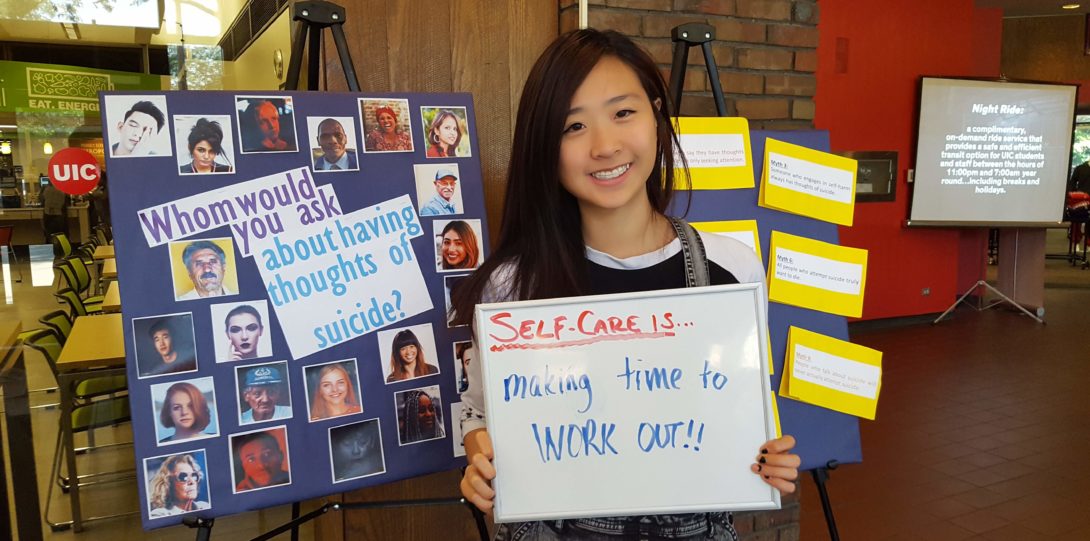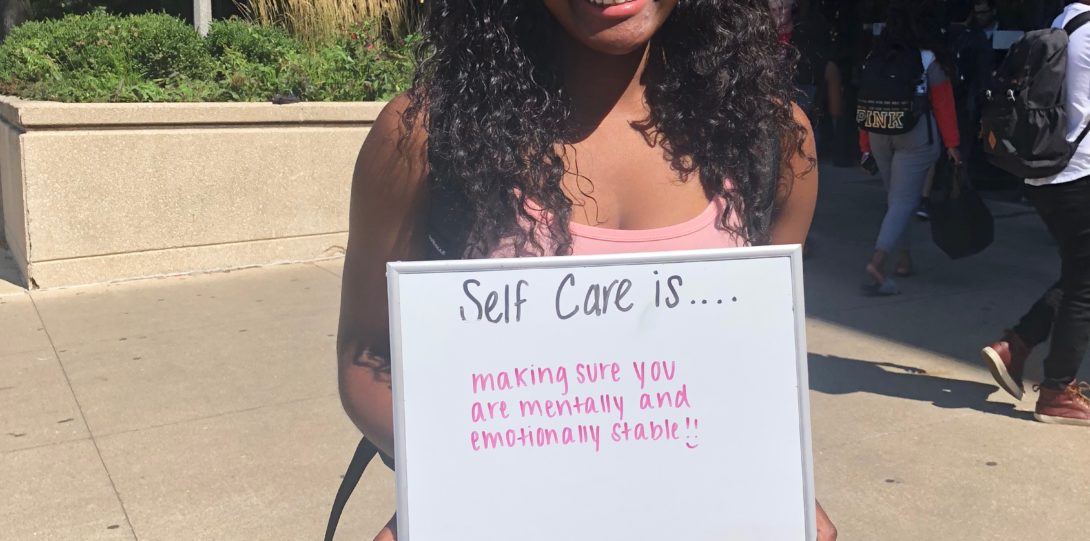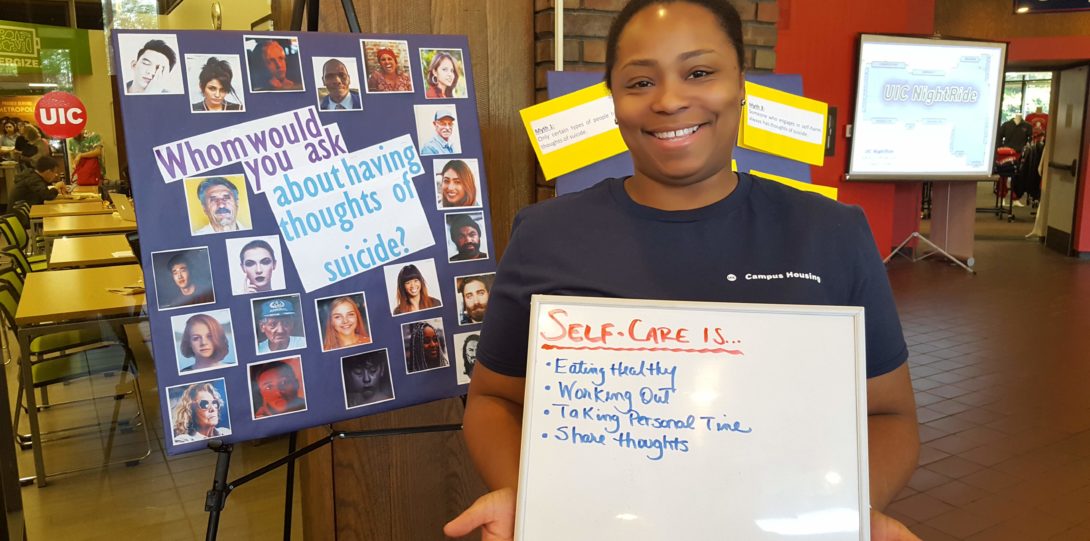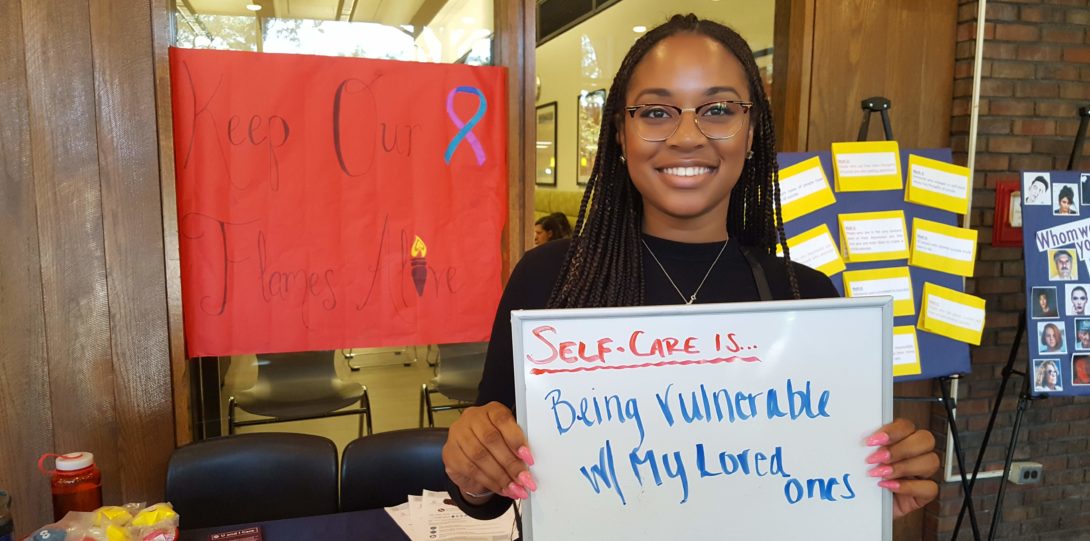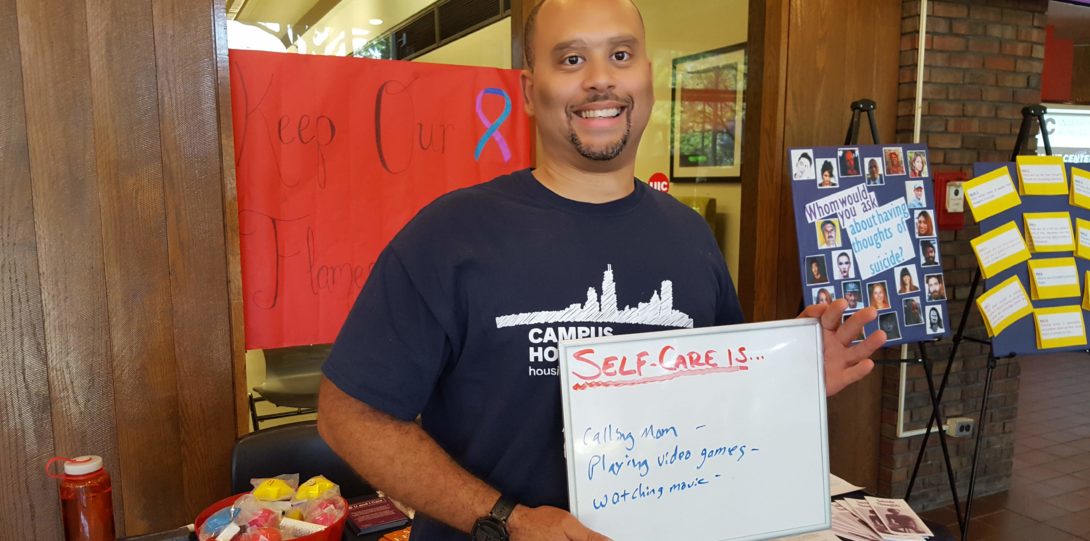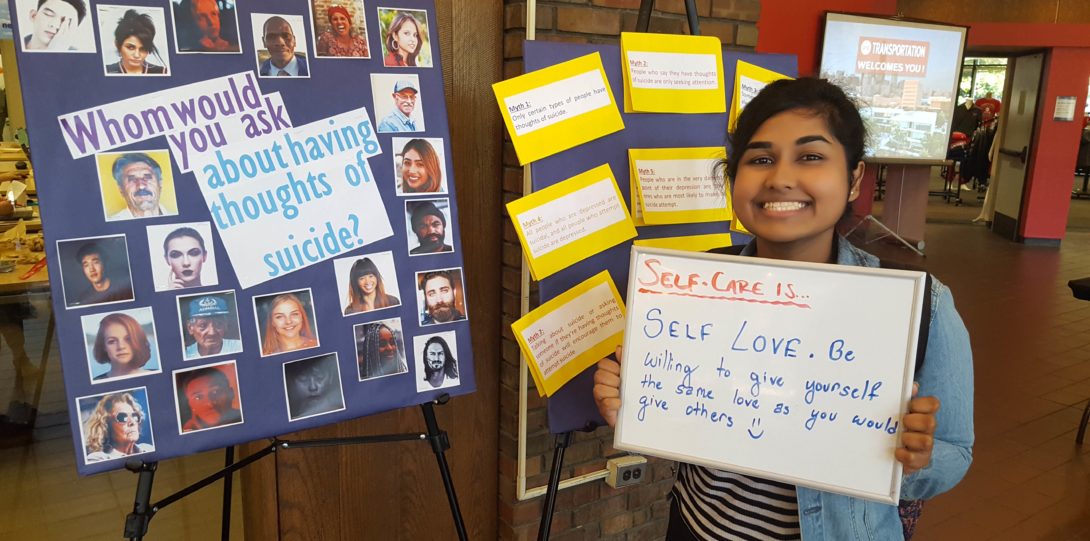Self-Care
Accordion
Self-care is a way to cope with distress, as well as to prevent it. Click below to explore new ways to take care of yourself!
What is self-care?
Self-care looks different depending on who you ask – for example, psychology tells us that self-care is “providing adequate attention to one’s own physical and psychological wellness” (Beauchamp & Childress, 2001). Urbandictionary.com tells us self-care is “putting absurd amounts of parmesan cheese on your spaghetti.” We’ll talk about what self-care may look like for you in the prompts below, but for now let’s consider self-care to be the activities we engage in to nurture and restore our bodies and our minds amid the demands of daily life.
What ISN’T self-care?
Self-care is NOT a luxury – it isn’t a selfish indulgence, a sign of laziness, or something to do “if you have time.” We are all worthy of self-care.
Self-care is only self-care if it is tailored to you and your needs at the moment; what helps you in one situation might be completely different from what helps you in different situation. And remember, self-care doesn’t have to be a weekend getaway or a whole day at the beach – it can be ten minutes of quiet time before a full day of classes or grabbing a cup of coffee with a friend. The key to self-care is attuning to yourself and listening for what you need. Try experimenting with your self-care, both in terms of time and type of activity.
Speaking of activity, what qualifies as self-care for one person may not feel like self-care to someone else. For example, if you tend to feel refreshed and recharged after spending time with others, a night connecting with friends or family might restore you to your optimal functioning. If you are more introverted, spending additional time with others might feel draining, and you may experience more healing from enjoying a good meal or diving into a good book. Similarly, self-care often looks different across cultures.
Why is self-care important?
Self-care is the key to a balanced lifestyle; not only does it feel good, it helps move us forward in the areas of our lives that matter most. For example, students tend to perform better on exams if they have taken breaks while studying than those who study without taking breaks. (Especially if you use the break to exercise, meditate, or sleep – sorry Facebook, social media can actually cause more stress!) We are better versions of ourselves when we take care of bodies and minds, which matters not only for ourselves but for the people around us. Would you want to see a doctor who doesn’t engage in self-care and cannot provide you the best of her care? Neither would we! Many of us avoid self-care in the name of selflessness and dedication to others, but as any good flight attendant will tell you, you have to put on your “oxygen mask” before you can truly help others. So do the selfless thing and take care of yourself!
How can I practice self-care?
| If you need to get away: |
|
|---|---|
| If you need to go inward: |
|
| If you need to connect: |
|
| If you need to get creative: |
|
| If you need to work with your hands: |
|
| If you need to care for your body: |
|
| If you need to relax: |
|
How do I make time for self-care?
When we wait until we “have time” for self-care, it may be too late for it to serve its preventative purpose. At that point, self-care is doing damage control for a burned-out individual. Alternatively, self-care is best practiced when you make time for it. Put it in your schedule, write reminders for yourself, and ask your friends and family to hold you accountable to it. Try to be specific about what you plan to do, that way you’ll be more likely to do it, rather than to say, “I didn’t have anything really planned, so I guess I can skip it today.” As you look over your current schedule, ask yourself where self-care will be most needed (e.g., after a stressful lab class, before a class that gives you test anxiety). Don’t overbook or spread yourself too thin – practice setting boundaries and protect the time you have set aside to take care of yourself.
Really though, I don’t have any time for self-care today, and I’m super stressed. What can I do?
We’ve all been there – those nights when we’re on our last legs, just trying to push through the stressor of the moment. Don’t have time to go for a run or call a friend? Try self-soothing. This is sort of self-care-shortcut that works in a pinch, but it does not replace the need for self-care.
Self-soothing is all about the senses – sight, hearing, smell, taste, and touch. Consider something that simply feels good to one or more of those senses – it could be the feel of a comfortable pair of sweatpants, the sight of a loved one, the smell of bread baking, the taste of a warm cup of cocoa, or the sound of your favorite band. If you’ve got a stressful situation on your hands, or maybe you’re even coping with suicidal thoughts, try comforting your senses with an indulgence like this. It won’t solve the problem at hand, but it will make you feel much, much better while you get through it. And when you have made it to the other side, consider ways you can incorporate self-care into your routine so that you can increase your resilience to stress in the future.
How do I hold myself accountable to maintaining self-care?
- If you write anything down, you’re more likely to do it, so write it down! In your schedule, in your phone, or on a post-it on your mirror.
- Set a bedtime reminder that asks, “what did you do for yourself today?”
- If your week is already looking pretty full, try not to seek out additional activities, and limit the temptation to stretching yourself too thin.
- Be specific about what kind of self-care you plan to engage in so you are less likely to flake on it.
- Communicate your self-care goals to friends and family so they know: 1) not to ask you to do more than you can, and 2) to remind you to stay on top of your self-care (clueing them in to your self-care goals will also help them identify when you aren’t meeting those goals and are in distress, which will help them help you).
- You can also be an accountability partner for others, which will remind you to manage your own self-care.
- Perhaps most importantly, remember why you are doing it – no number of reminders is as effective as truly believing in the impact of self-care and having your own motivation to do it, whether it’s to get enough sleep so you can perform well on an exam or to keep from spiraling to suicidal thoughts. Consider including your reasons in your reminders, even if the reason is simply “because I’m worth it!”
Here is a self-assessment tool that can help you gauge what your self-care looks like now. It can give you more ideas for how you might expand your self-care – taking it often can also help hold you accountable to your self-care goals.
What self-care resources are available on campus?
School may be a prominent stressor for many students, but with it comes several free resources for self-care! Consider the following:
- For the body:
- Campus Recreation (for exercise equipment, classes, club sports teams, massage, pool, steam rooms, and more)
- Family Medicine
- For the mind:
- To get out:
- Bowling and Billiards
- Flames sporting events (free for UIC Students with I-Card)
- Gallery 400
- Jane Addams Hull House Museum
- Credit Union 1 Arena
- To connect:
For self-care activities in the Chicago area on the UIC Website or on the Choose Chicago website.

